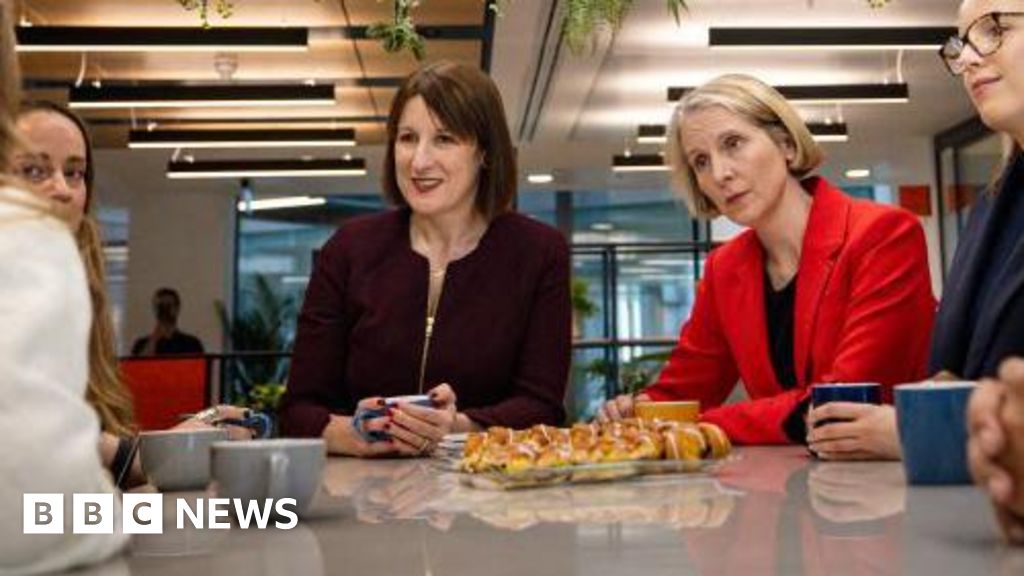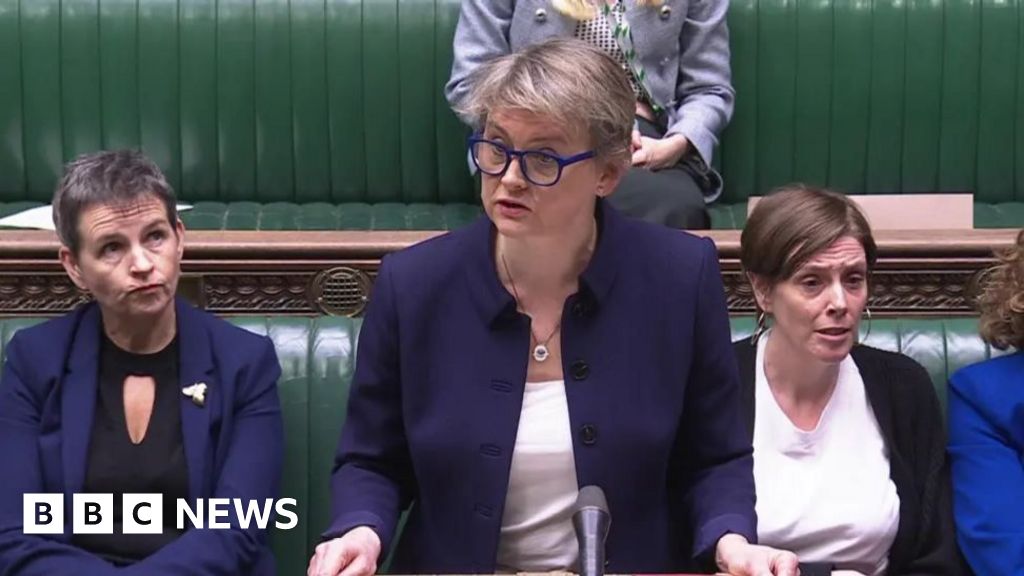ARTICLE AD BOX
By James Landale
Diplomatic correspondent
Chancellor Rishi Sunak is being accused of attempting to mount a "stealth raid" on Britain's foreign aid spending.
Development charities say the Treasury is hoping to use "accounting tricks" in this month's Spending Review to squeeze the aid budget by billions of pounds.
They fear new items will be designated as "overseas development assistance" in a way that would cut the amount spent directly on humanitarian aid.
The Treasury said it would continue to protect the world's poorest people.
But it would not speculate on future spending commitments ahead of a fiscal event.
Any rebadging of overseas assistance would be seen by some as an attempt by Mr Sunak to seize further control of the aid budget while new Foreign Secretary Liz Truss is finding her feet.
But Foreign Office sources said Ms Truss - as a former chief secretary - was familiar with how the Treasury worked and it would be wrong to suggest she was unaware of what was going on.
The government is already cutting aid spending by reducing the target of what must be allocated to overseas assistance from 0.7% of national income to 0.5%.
That means a reduction this year of about £4bn, leaving the total amount being spent on aid at roughly £10bn.
There are strict international rules about what counts as aid and charities fear the Treasury is looking at options that would effectively break the spirit of these rules.
They say officials want the cancellation of a multi-million-pound debt owed by Sudan to the UK to count as official aid, even though the money was effectively written off years ago.
They say the Treasury wants some foreign currency handouts from the International Monetary Fund - known as Special Drawing Rights - to count as aid. These complex financial mechanisms are designed to help developing countries cope with Covid. But even though the money comes from the IMF and not UK coffers, officials want 30% to count towards the 0.5% target.
The Treasury is also understood to want to designate the cost of giving Covid vaccines to developing countries as official aid. This could amount to as much as £1bn.
Some analysts say the Treasury is additionally considering switching large chunks of aid spending from so-called "resource" budgets to "capital" budgets, an accounting change that would make it harder for the Foreign Office to spend aid on what it wants.
Ranil Dissanayake, policy fellow at the Centre for Global Development think tank, said all these changes - if made together - could potentially reduce the FCDO's discretionary aid budget from £8bn to as little as £2bn.
"That would amount to a complete gutting of the UK's status as a major bilateral development presence, essentially depriving [the Foreign Secretary] of one of its most potent weapons almost immediately after she assumes the brief," he said. "The UK's status as a serious bilateral donor would be under existential threat."
He added: "Unless Liz Truss manages to stop the chancellor from bullying her department out of its spending power, the UK will become a near non-entity as a bilateral development actor as early as next year."
One source in the aid sector said: "Rishi is trying to cut Liz Truss off at the knees before she's got her legs under the table."
Romilly Greenhill, UK Director of ONE, the global campaign against poverty, said: "It's incredibly worrying that UK aid looks set to be cut again, through accounting trickery by the Treasury.
"The chancellor looks set to count the sharing of surplus vaccine doses, a new injection of cost-free foreign exchange reserves and the cancellation of debts that haven't been repaid for decades as part of the aid budget. If these areas are included under the new 0.5% pledge, it will further squeeze funding to tackle poverty, conflict and climate, hurting people both in the UK and around the world.
She added: "What's worse is that it's happening by stealth. The Treasury is combing the aid rules for loopholes and ambiguities to save money on technicalities. It will mean death by a thousand cuts for UK aid."
Abigael Baldoumas, policy and advocacy manager at the international development network BOND, said: "We are deeply concerned about a further assault on the aid budget. There is a real risk that the Treasury will use accounting tricks to reduce the amount of aid the Foreign Office can spend in ways that make a real difference to the lives of people living in poor and middle-income countries."
She added: "Special drawing rights were issued to put more money in the hands of low and middle-income countries to tackle the devastating impact of the pandemic, not so that the Treasury could use them to replace of overseas development assistance.
Meanwhile, Sarah Champion, International Development committee chair, said: "The chancellor may think he's clever by playing these financial sleight of hand games, but it's not just the poorest in the world that suffer, it's the UK's international reputation."
A Treasury spokeswoman said: "We will continue to protect the world's poorest. The UK is one of the highest donors in the G7 and this year we will spend at least £10bn on overseas aid. We do not speculate on future tax and spending commitments ahead of fiscal events."
The Treasury said the UK would continue to "score" overseas development assistance "fully guided by and in accordance with" the rules laid down by the Organisation for Economic Cooperation and Development.
It also emphasised the UK's aid spending was "considerably more" than the 29 countries on the OECD's development assistance committee.

 3 years ago
41
3 years ago
41








 English (US) ·
English (US) ·